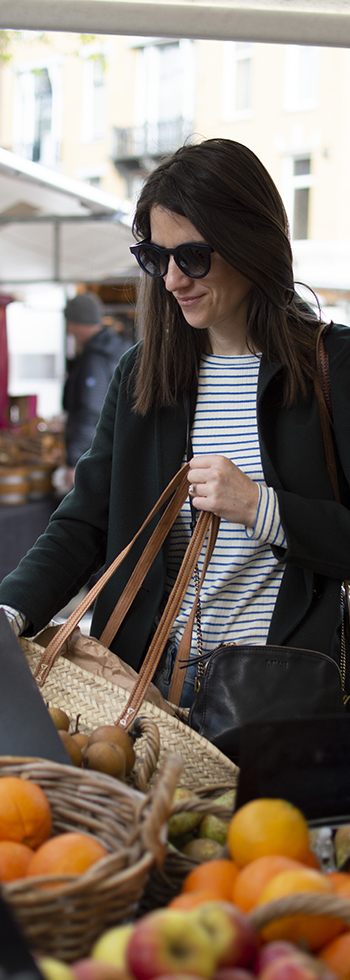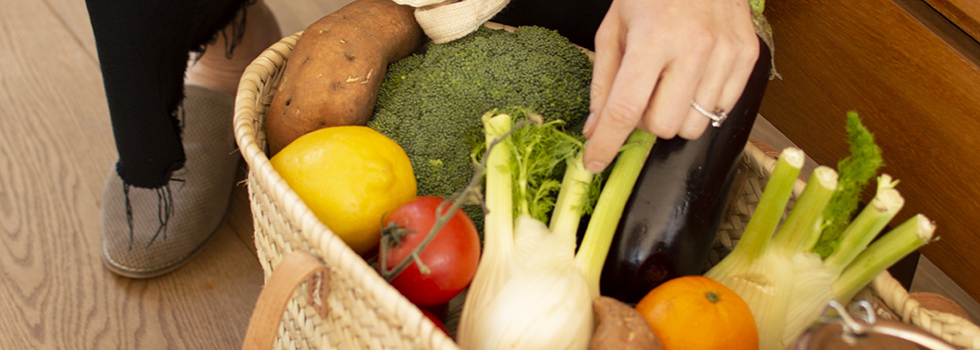Zero waste … with kids? In a major city? Yes! Zero waste isn’t about being perfect. It’s about doing lots of little things as consistently as you can. Erica Isaacson shares manageable strategies for Amsterdam families to reduce waste.
I decided to start down the path to zero waste two years ago, after my daughter, then aged five, came home from school and declared: “Plastic is too strong for the planet. It will fill up the oceans and never go away.”
I spent much of my career as a sustainability consultant, driving companies toward better business practices, including reducing their waste. That day, I glanced at my own household trash and thought: Am I really doing everything I can to show my kids how to take action?
The statistics around plastic pollution are pretty dismal: only 9% of manufactured plastic has been recycled. If converted to cling wrap, the amount of plastic waste on earth is enough to wrap the entire planet once over; and by 2050 plastic will outnumber fish in the sea.
My mantra is “Don’t be perfect, just get started.”
Most of us want to reduce our waste and our plastic use, but that idea can be pretty daunting: almost everything—from food to shampoo to batteries—comes wrapped in plastic or some sort of packaging at most stores. However, as the zero-waste lifestyle becomes more popular, more zero-waste stores and package-free options are popping up, and it’s making it easier to avoid unnecessary packaging. My mantra is “Don’t be perfect, just get started.”
Zero Waste Is Not About Perfection
The idea of zero waste can sound too extreme. For me, much of what I saw on social media was unattainable; for example, the person who only accumulates a mason jar’s worth of trash in a year. Impossible! Especially with kids!
But zero waste is not at all about doing things perfectly. Within corporations, we use a standard definition of zero waste as “95 percent diversion of waste from landfill.” Zero waste is not about being perfectly zero. Package free shopping options are making it easier to get started, but no one can truly live and make literally no waste.
Basic Principles of Zero Waste
Zero waste is about is avoiding unnecessary waste, especially single-use plastic and plastic disposables, as much as possible. It is not about one big lifestyle shift, but rather doing lots of little things to reduce waste as consistently possible.
It’s about changing daily routines:
- Refuse single-use disposables
- Reduce what you consume
- Repair and re-use things that still have life
And because some waste is inevitable, it’s about trying to
- Rot (compost) and
- Recycle the rest
Waste Reduction: A Simple Approach
If only many more shops in Amsterdam had bulk aisles, carried package-free produce, or otherwise made zero waste easier! Despite the existing challenges, there are things everyone can do. Here are 5 ways to start reducing waste immediately:
1) Be Prepared With a Tote 
Put together a small bag with some or all of the following items:
- Reusable water bottle
- Container for taking leftovers or purchasing food when out
- Cloth napkin
- Cutlery
Being prepared in this way allows you to say NO to disposables like plastic straws, plastic cutlery, and cups when you’re on the go. Plastic disposables cannot be recycled and always wind up in landfill, or worse, the environment. Bever has a nice selection of reusable containers, although always use containers you already have before buying new.
2) Switch To A Bar for Shampoo, Conditioner, Dish and Hand Soap
Not all bar soap is created equal. Shampoo and conditioner bars are an easy zero waste swap because they are great on hair plus both are perfect for travel or toting to swim class – just toss in your bag. Dish soap bars are specially formulated to cut grease and make dishes shine, all without the plastic waste. Here in Amsterdam, DIY Soap and the online shop Oodles & Pinches both have good selections.
3) Buy Loose Produce, and Don’t Forget Your Own Bags
Albert Heijn customers alone use around 170 million plastic bags for fruit and vegetables each year! Yet Amsterdam is filled with places to buy loose produce – small grocers and outdoor markets are plentiful in many neighbourhoods, and are usually cheaper too. Although, if you are in a supermarket, opt for the loose produce versus pre-wrapped. Either let the produce roll loose in your cart or bring along a few smaller reusable produce bags. Many stores including Ekoplaza, Delicious Food, and Little Plant Pantry, the newest zero waste store in Amsterdam, have cloth produce bags for purchase.
4) Rot (aka compost) Whatever You Can
Almost 25% of the waste stream is made up of organic and compostable materials like paper, vegetable scraps and fruit peels. Once food is packed into a landfill it does not decompose and it begins to emit high levels of methane, a powerful greenhouse gas that contributes big time to climate change. So, while composting does take effort to get started, its positive impact on the planet is huge. Some neighborhoods in Amsterdam have worm hotels (wormenhotels), you can contact the Gemeente to see if you can add your waste to one. Otherwise, outdoor garden and indoor kitchen vermicomposting are also options. I have a vermicompost in my kitchen from Balkonton and my kids think it’s a lot of fun!
5) Recycle as a Last Resort
Know what can and cannot be recycled in your neighbourhood and separate your items accordingly. For hard plastic items that can’t be recycled by the city take it to Zero Waste Lab. Only about 20% of plastic is actually recycled because demand just can’t keep up with consumption, which is why recycling comes as a last resort.
Think Outside the Box Everyday
Zero waste is also about thinking outside the box everyday and selecting no-waste or plastic-free alternatives as much as possible. Nowhere do I see more opportunity for this than with traktaties, the creative treats kids dole out on birthdays in the Netherlands. While they bring the kids a lot of joy to make and receive, they usually end up forgotten in a matter of hours (at least in my house). There are so many wonderful ideas available online on how to make traktaties that don’t involve plastic—just search through Pinterest or Amsterdam Mamas’s Facebook feed and you’ll be convinced! Also, consider using paper party bags and fill them with candy from a bulk bin (many Etos have these) or giveaways like notebooks, masks and stickers instead of plastic balloons, bubbles and other plastic trinkets that will quickly end up in the trash.
Every Change Has an Impact
The bottom line is there still needs to be more options in more Amsterdam neighbourhoods to facilitate going zero waste at scale and meet the growing wishes of Amsterdammers to reduce plastic consumption. But in the meantime, every purchase you make (or don’t make) is a vote. I recommend people take waste reduction step by step, and remember that every small change toward less waste is positive. Plastic may be strong, as my daughter said, but together we are stronger.
Photo credits: Erica Isaacson
Erica Isaacson
Erica Isaacson is a sustainability consultant and shares her zero waste experience in Amsterdam on Instagram as @TheZeroist.






